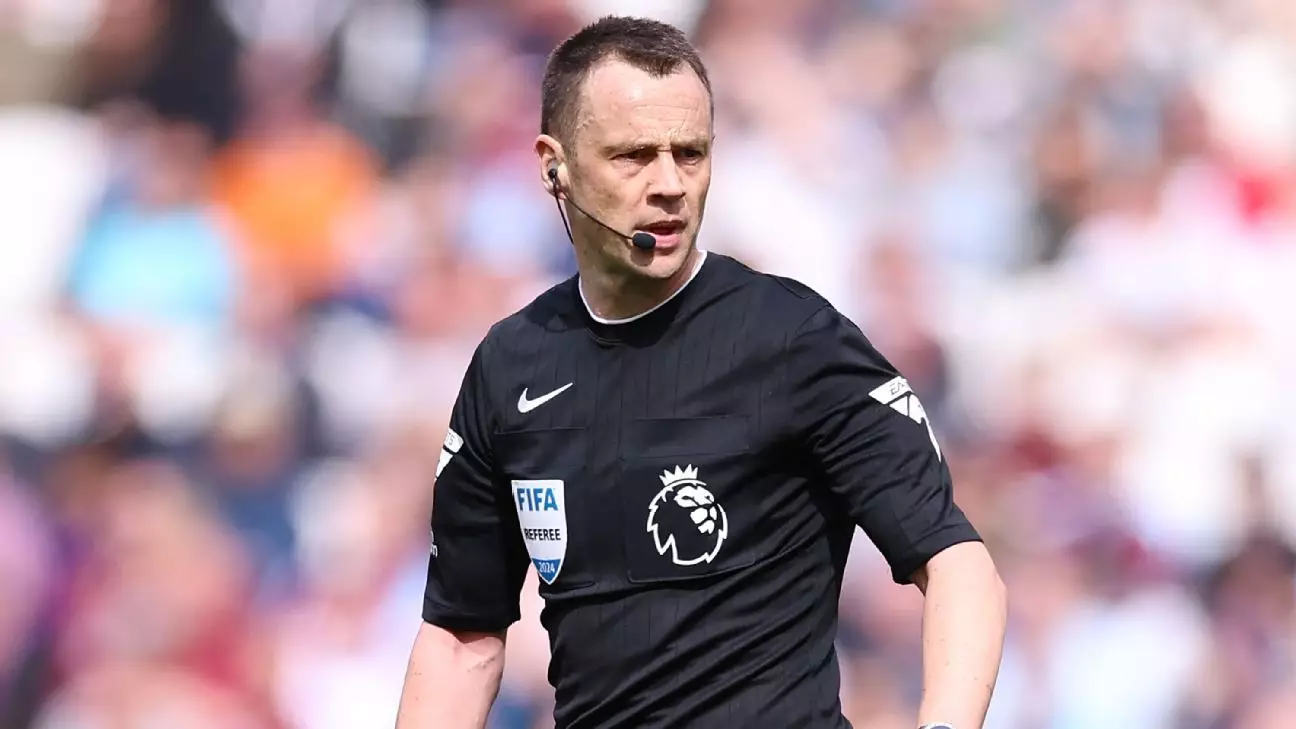The controversy surrounding the declared allegiances of Premier League referees has come into the spotlight following a complaint from Nottingham Forest about the appointment of a VAR last season. The Professional Game Match Officials Limited (PGMOL) faced criticism for assigning Stuart Attwell, a Luton Town supporter, as the video referee for a match where Forest felt his allegiance created a conflict of interest. This incident has prompted a closer look at the policy regarding referee allegiances in the Premier League.
Howard Webb, the chief refereeing officer at PGMOL, has acknowledged the need for greater transparency when it comes to the declared allegiances of Premier League referees. He has confirmed that the process behind assessing any possible conflict of interest will be made public. This includes the declaration of any specific interests by referees at the start of the season, with updates as the season progresses. The aim is to provide clarity on how these declarations are reviewed and how judgments are made in cases where a conflict of interest is identified.
Nottingham Forest’s complaint about the appointment of Stuart Attwell as the VAR in their match against Everton stemmed from perceived bias in the officiating. The club highlighted three potential penalty claims that were denied by the on-field referee, Anthony Taylor, with support from Attwell as the video referee. This led to frustration from Forest, who took to social media to express their concerns and reveal Attwell’s allegiance to Luton Town. The club’s actions resulted in a charge of improper conduct from the Football Association, which is yet to be addressed by a disciplinary commission.
Former Premier League referee Mark Clattenburg, who was consulting for Nottingham Forest at the time, also raised concerns about the appointment of Attwell. Clattenburg eventually resigned after facing charges from the FA over comments made in a newspaper column about the match in question. His criticisms of PGMOL’s handling of the situation further underscored the need for open dialogue and transparency in the decision-making process regarding referee appointments.
Howard Webb emphasized the importance of engaging with stakeholders, including ex-referees like Clattenburg, to foster better understanding of the role of match officials and the rationale behind their decisions. He acknowledged the potential for former referees to contribute to educating players on the laws of the game, thereby enhancing mutual respect and comprehension within the football community. The incident involving Attwell and Forest serves as a reminder of the complexities and challenges faced by referees in maintaining impartiality and integrity on the field.
The recent developments regarding the transparency of Premier League referee allegiances highlight the significance of clear protocols and open communication in addressing potential conflicts of interest. By making the process of evaluating referee declarations public, organizations like PGMOL can demonstrate their commitment to fairness and accountability in officiating decisions. As the footballing landscape continues to evolve, maintaining trust and transparency in referee appointments will be essential for upholding the integrity of the game.

Leave a Reply